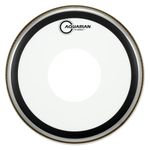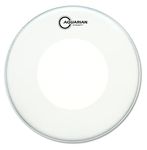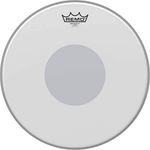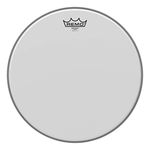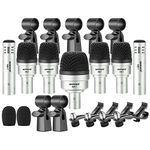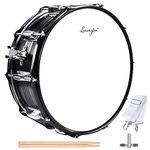10 bestSnare Drum Headof January 2026
112M consumers helped this year.
1
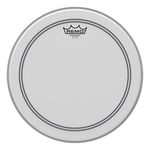
Remo P30114-BP Coated Powerstroke 3 Drum Head (14-Inch)
REMO

9.9
2
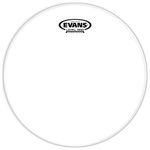
Evans Clear 300 Snare Side Drum Head, 13 Inch - S13H30
Evans

9.8
3
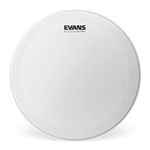
Evans Genera HD Dry Drum Head, 14 Inch - B14HDD
Evans

9.7
4
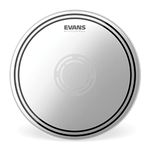
Evans EC Reverse Dot Snare Drum Head, 14 Inch - B14ECSRD
Evans

9.6
5
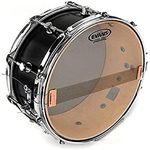
Evans Clear 200 Snare Side Drum Head, 14 Inch - S14H20
Evans

9.4
Other
6
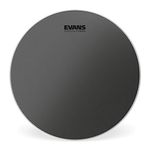
Evans Hybrid Coated Snare Batter Drum Head, 13 Inch
Evans

9.2
7
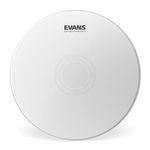
Evans Heads B14HW 14-Inch Heavyweight Snare Drum Head
Evans

9.0
8
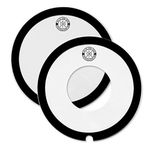
Big Fat Snare Drum BFSD14COMB Snare Drum Head
Big Fat Snare Drum

8.7
9
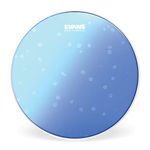
Evans Hydraulic Blue Snare Batter Drum Head, 14 Inch
Evans

8.5
10
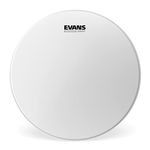
Evans B14G1RD 14" Power Center Reverse Dot Snare Head
D'Addario

8.2
A Guide to Selecting the Best Snare Drum Head
Choosing the right snare drum head is essential for shaping the sound and feel of your snare drum. The drum head is the surface you strike, and it has a huge impact on tone, sensitivity, and durability. When picking a snare drum head, think about the style of music you play, how much attack or warmth you want, and how often you play. Understanding the main features will help you find a drum head that matches your playing style and sound preferences.
Ply (Single vs. Double)
Ply refers to the number of layers of material (usually Mylar) that make up the drum head. Single-ply heads are made from one thin layer and offer a bright, open sound with lots of sensitivity, making them great for lighter playing and genres like jazz or pop. Double-ply heads have two layers, which makes them more durable and gives a deeper, more controlled sound with less ring, ideal for heavier playing styles like rock or metal. If you play softly and want more resonance, go for single-ply. If you hit hard or want a focused sound, double-ply is a better choice.
Coated vs. Clear
Coated heads have a textured surface, which gives a warmer, drier sound and helps with brush work, making them popular for jazz and studio use. Clear heads have a smooth surface, resulting in a brighter, more open sound with more attack, often preferred in live rock or pop settings. If you want a softer, more controlled tone or use brushes, choose coated. If you want more brightness and attack, clear is the way to go.
Thickness
Drum head thickness affects both sound and durability. Thinner heads (around 7-8 mil) are more sensitive and produce a brighter tone, but they wear out faster. Thicker heads (10 mil or more) are tougher, last longer, and give a deeper, more focused sound with less overtones. If you play gently and want more sensitivity, a thinner head is suitable. For heavy hitters or those wanting a punchier sound, thicker heads are better.
Control Rings and Dots
Some drum heads have built-in control rings or dots (either on top or underneath) to reduce overtones and focus the sound. These features help control ringing and make tuning easier, which is useful in live or recording situations where a clean, focused snare sound is needed. If you struggle with unwanted ringing or want a more controlled sound, look for heads with these features. If you prefer a more open, resonant sound, choose heads without them.
Sensitivity and Response
Sensitivity refers to how well the drum head picks up light touches and ghost notes. Heads with higher sensitivity are great for intricate playing and styles that use a lot of dynamics, like jazz or funk. Less sensitive heads are more forgiving and better for loud, consistent playing. If you play with a lot of subtlety and dynamics, prioritize sensitivity. If you mostly play loud and straightforward, this is less important.
Best Reviews Guide Newsletter
Get exclusive articles, recommendations, shopping tips, and sales alerts
Sign up for our newsletter to receive weekly recommendations about seasonal and trendy products
Thank you for subscribing!
By submitting your email address you agree to our Terms and Conditions and Privacy Policy
